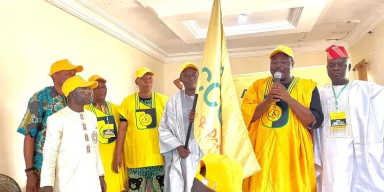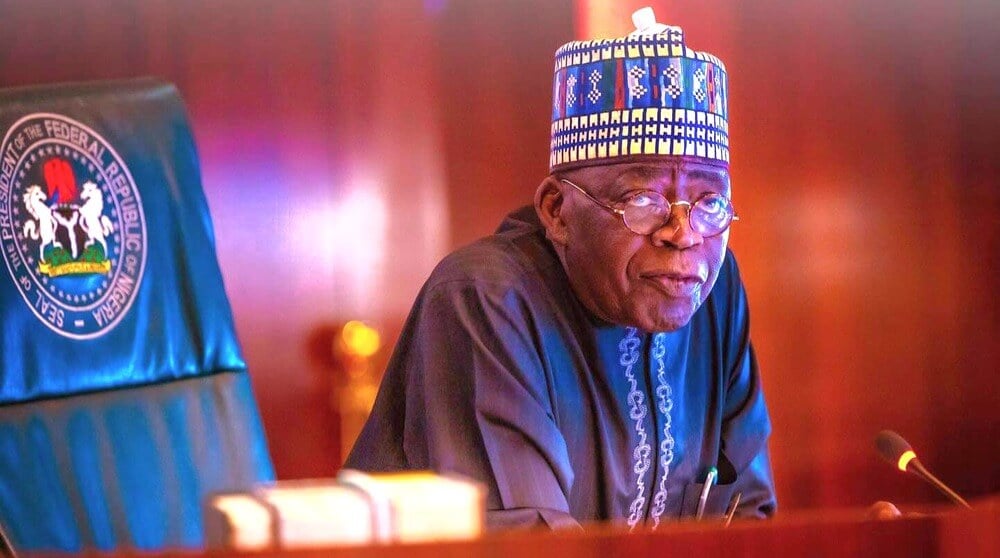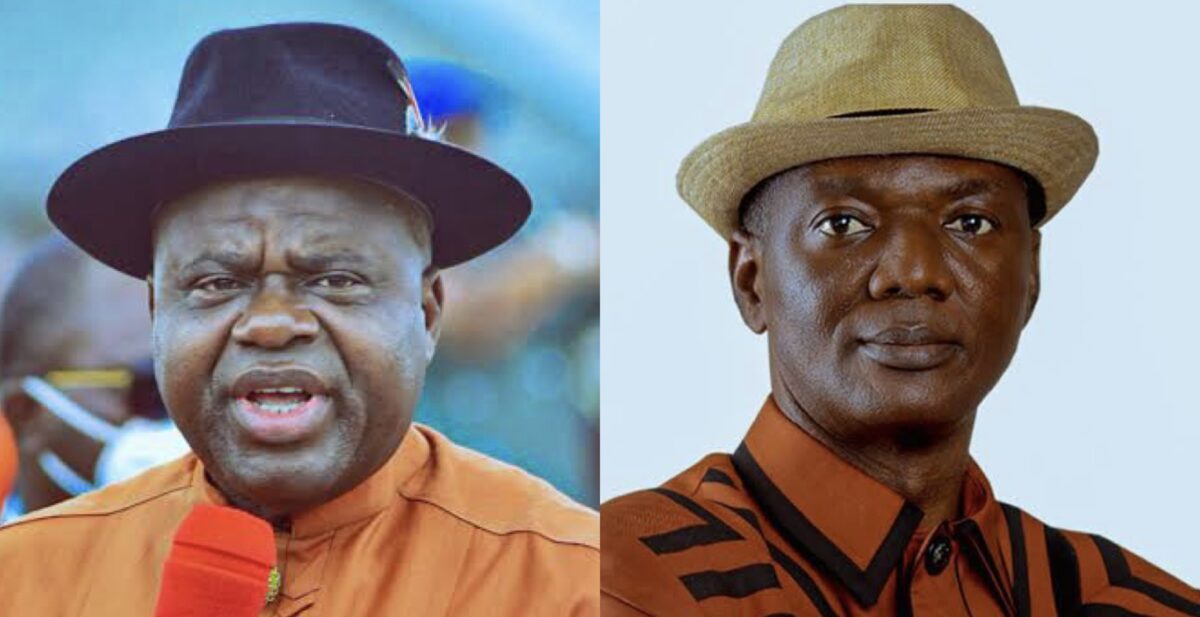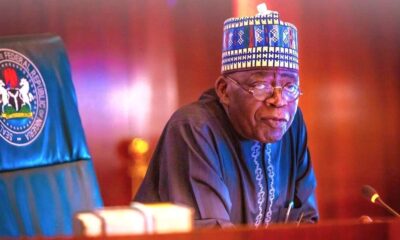Politics
G20 Summit: Brazil’s billionaire tax plan faces pushback
The G20 summit in Rio aims to build consensus on taxing the super-rich for climate action and poverty relief. But as geopolitical issues take priority, President Lula may struggle to quell skepticism over the proposal.
Brazilian President Luiz Inacio Lula da Silva, hosting the G20 summit in Rio de Janeiro from Monday, will try to progress plans to tax the world’s richest billionaires, who often use complex loopholes to avoid tax.
At a July meeting of G20 finance ministers in Rio, the world’s wealthiest nations agreed to start a “dialogue on fair and progressive taxation, including of ultra-high-net-worth individuals,” despite fierce resistance from the United States and within Germany’s now collapsed coalition government.
While the world’s growing geopolitical issues — the Ukraine and Gaza conflicts, the prospect of a second Trump term in the US and China trade — are expected to dominate the two-day summit, Lula hopes to move the wealth tax plan forward as the money raised from billionaires will help boost other pressing global issues.

Campaigners have called for years for greater scrutiny over how the wealthy avoid taxes
© Fabrice Coffrini/AFP
Advocates say new tax would cause little pain
Devised by French economist Gabriel Zucman, the plan would introduce an annual tax of 2% on the total net worth of the uberwealthy — not just their annual income. This would include real estate assets, corporate shareholdings and other investments. Zucman estimates that the top 0.01% of the population pay an effective tax rate of just 0.3% of their wealth.
The new levy could raise up to $250 billion (€237 billion) a year from the nearly 2,800 billionaires globally, who have a combined net worth estimated at some $13.5 trillion, according to the Forbes Richest World’s Billionaires List. The funds raised would be used to tackle growing global inequalities, especially among heavily indebted low-income countries, including many in Africa.
“The taxation of high net-worth individuals is very important as it could be a source for funding initiatives that fight hunger and poverty, and also tackle climate change,” Tomas Marques, a research fellow at Hamburg’s GIGA Institute for Latin American Studies, told DW.
Developing nations, who many scientists say are being disproportionately affected by climate change, have for years demanded funding to offset its worst impacts. Success stories include World Bank and Green Climate Fund support for India’s bid to boost solar power capacity and Brazil’s Amazon Fund, aimed at reducing deforestation, which is part-funded by Norway and Germany.
Skepticism over G20 spending plans
While there may be broad public support for new taxes on the ultra-wealthy, the rise of national populism in many G20 countries is increasing scrutiny about how public money is spent, amid concerns that international aid and development funds could be better deployed at home.
“Most of the G20 countries are having a hard time balancing their budgets,” Maria Antonieta Del Tedesco Lins, an economist and associate professor at the University of Sao Paulo, told DW. “While extra taxes would help, it’s very hard to juggle national pressures with new international or multilateral obligations.”
Monday’s opening ceremony in Rio will launch the Global Alliance Against Hunger and Poverty, an initiative under Brazil’s G20 presidency that seeks to accelerate efforts in the fight against poverty and a lack of food by 2030.
The Brazilian government is also the principal backer of the proposed tax on the ultrawealthy, along with France, Spain and South Africa. Despite this support, the lower house of Brazil’s parliament, the Chamber of Deputies, last month rejected plans for an additional domestic levy on those with large fortunes.
“It’s a shame because Brazil could benefit a lot [from this tax] because we are a very unequal country. If there was an international consensus [on taxing the superrich] it could help negotiations in the Brazilian Congress,” said Lins, who took part in a G20 academic engagement group ahead of the summit.
In Brazil, as in the rest of the world, the wealthy often shield their wealth from tax authorities by creating shell companies in countries with low or zero taxes, taking advantage of banking secrecy laws and forming trusts and charitable foundations, which offer generous tax breaks.
US spurns wealth-tax proposal
While China’s and India’s positions on the new tax are ambiguous, Washington remains firmly opposed. US Treasury Secretary Janet Yellen told the Wall Street Journal in May that the measure was “something we can’t sign on to.”
President-elect Donald Trump has yet to comment on the proposal but is unlikely to back hiking taxes on the uber-rich. His first term was marked by large tax cuts — which benefited wealthy individuals and corporations the most. But during his short-lived run for the White House in 2000, he did promise to cut the national debt by levying a one-time 14.25% tax on the wealthy.
Lula then faces tough odds in making any meaningful progress during the two-day summit, especially as many critical geopolitical issues, as well as Brazil’s proposal to improve global governance will also dominate the talks.
“Lula is a great negotiator,” Marques said. “He bills himself as a bridge builder between the Global South and Global North. But I don’t know how he can reach a consensus around this very sensitive topic.”

Brazilian President Luiz Inacio Lula da Silva is a shrewed negotiator, who is determined to push ahead with higher taxes on billionaires
© Erica Martin/TheNEWS2/picture alliance
Wealth tax — a boon for Africa
Better representation at G20 for Africa is now critical, as the continent seeks to benefit from any new tax plan, through the receipt of poverty and climate alleviation funds. The African Union, the regional bloc of 55 African countries, will be attending the Rio summit for the first time, after being admitted as a full G20 member in August.
Next year, South Africa will take over the rotating G20 presidency — the fourth consecutive leadership of the bloc from the Global South, after Indonesia, India, and Brazil. The role will give the country and Africa as a whole further opportunities to shape global policies and advocate for the continent’s interests.
“African countries have been underrepresented in the G20 despite the continent’s importance globally,” Marques, who is in Rio for the summit, told DW. “But things are changing, and the African Union is now starting to have some influence on policymaking.”
Edited by: Uwe Hessler
Author: Nik Martin
Politics
Accord Party Crisis Deepens As Another Governorship Candidate Emerges For Osun Polls

A faction of Accord Party has held its own governorship primary, where Mr. Clement Bamigbola emerged as the faction’s governorship candidate for the 2026 Osun State election.
This is coming just four days after the emergence of Governor Ademola Adeleke as the party’s flag-bearer.
Recall that the party under the leadership of Maxwell Mgbudem, on Wednesday, held a similar exercise which produced Governor Ademola Adeleke as the party’s candidate.
However, a faction of the party rejected his emergence, insisting that Barrister Maxwell Mgbudem is not the legally recognized national chairman of the Accord Party.
In a fresh development on Sunday, about 300 delegates of the Accord Party from across Osun State elected Bamigbola as the factional candidate during a primary held at Regina Suite, Osogbo.
Bamigbola emerged through a voice vote conducted by the delegates, after which the Chairman of the Primary Committee, Hon. Olufemi Ogundare, declared him the party’s candidate for the 2026 Osun State governorship election.
Politics
Tinubu, ECOWAS leaders meet in Abuja over Benin coup, regional stability

President Bola Tinubu and leaders of ECOWAS countries are currently meeting in Abuja.
The 68th Ordinary Session of the ECOWAS Authority of Heads of State and Government is taking place at the State House Conference Centre, in Abuja.
Leaders of West African countries at the meeting include President Julius Bio (Sierra Leone, ECOWAS Chair), President Patrice Talon (Benin), José Maria Neves (Cabo Verde) and Alassane Ouattara (Côte d’Ivoire).
Others are Adama Barrow (The Gambia), John Mahama (Ghana), Umaro Embaló (Guinea-Bissau), Joseph Boakai (Liberia), Bassirou Faye (Senegal) and Faure Gnassingbé (Togo).
The meeting is coming against the backdrop of five turbulent years for West Africa, which saw coups in Mali (2020, 2021), Burkina Faso (twice in 2022), and Niger (2023).
The latest incidents include an attempted coup in Benin on December 7, 2025, and renewed instability in Guinea-Bissau.
At the time of filing this report, details of the meeting are yet to be disclosed.
Politics
Breaking: Diri Orders Autopsy on Bayelsa Deputy Governor’s Death, Warns Against Politicisation

Bayelsa State Governor, Senator Douye Diri, has ordered an autopsy to determine the cause of death of the state’s Deputy Governor, Lawrence Ewhrudjakpo.
Governor Diri gave the directive on Saturday while receiving former President Goodluck Jonathan at the Government House in Yenagoa.
Reacting to the incident, the governor condemned what he described as widespread misinformation and speculation on social media, warning against any attempt to politicise the deputy governor’s death.
“I want to make an appeal. I have seen people politicise his death. In Ijaw land, there is no enmity in death. Let nobody politicise the passing of our dearly beloved deputy governor,” Diri said.
“If anyone truly loves him, this is the time to show it. I have directed that an autopsy be carried out to reveal the cause of his death. There is a lot of nonsense going on on social media.”
The governor further urged the public to focus on mourning and honouring the late deputy governor, noting that the state government had declared three working days of mourning in his honour.
“If anyone is issuing statements to eulogise him, let it end there. Let us mourn him because Bayelsa State is in a mourning mood,” he added.
Governor Diri also called for unity and love among the people, reminding them of the inevitability of death.
Speaking during the condolence visit, former President Goodluck Jonathan described the late Ewhrudjakpo as a committed and dedicated individual who played a key role in the activities of his foundation.
“For me, he was someone my foundation and I will never forget. He represented the governor in all our programs,” Jonathan said, adding that Ewhrudjakpo worked tirelessly in that role, even more than when he served as deputy governor.
-
Business1 year ago
US court acquits Air Peace boss, slams Mayfield $4000 fine
-

 Trending1 year ago
Trending1 year agoNYA demands release of ‘abducted’ Imo chairman, preaches good governance
-

 Politics1 year ago
Politics1 year agoMexico’s new president causes concern just weeks before the US elections
-

 Politics1 year ago
Politics1 year agoPutin invites 20 world leaders
-

 Politics1 year ago
Politics1 year agoRussia bans imports of agro-products from Kazakhstan after refusal to join BRICS
-
Entertainment1 year ago
Bobrisky falls ill in police custody, rushed to hospital
-
Entertainment1 year ago
Bobrisky transferred from Immigration to FCID, spends night behind bars
-
Education1 year ago
GOVERNOR FUBARA APPOINTS COUNCIL MEMBERS FOR KEN SARO-WIWA POLYTECHNIC BORI












